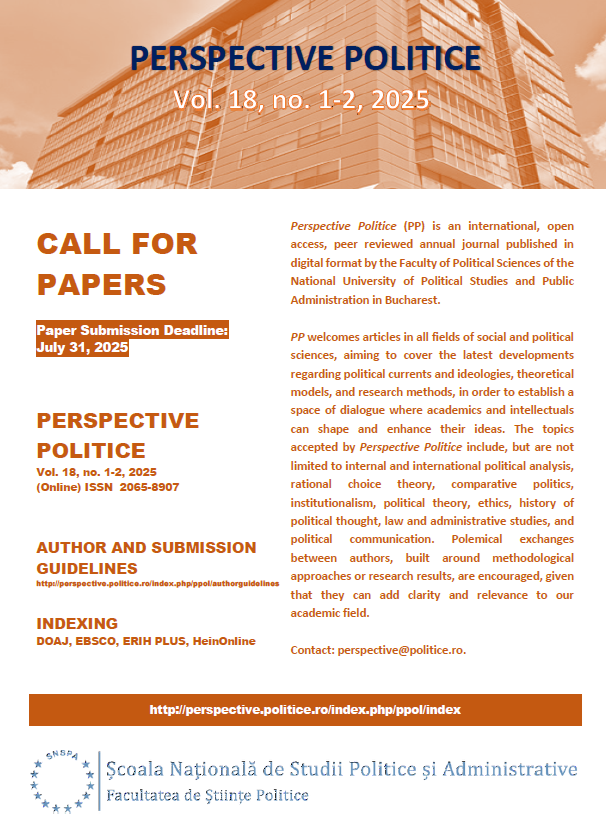Digital Democracy and the Growing Threat of Illiberalism. Opportunities and Limitations as Reflected by the Estonian Case
Abstract
Currently, the fourth and fifth waves of the industrial revolution are shaping the global political, economic, and social landscape. The development of robotics, artificial intelligence, and virtual reality (VR), doubled by the emerging importance of renewable energy sources, is redefining the relationship between the state and the citizen. In this context, the frequency of arguments that plead for an adaptation of the liberal democratic model to the digital environment is increasing. However, the latest developments in this field are also facilitating the spreading of populist and radical messages. Digital innovation is therefore, in many countries, contemporaneous with a process of democratic backsliding. Our paper represents a preliminary attempt to estimate the potential impact of digitalizing the political and social spheres on the stability of liberal democratic regimes. Answers to the questions put forward are provided by analyzing the digital evolution of politics and society in Estonia. We highlight data linked not only to topics such as online voting, participatory budgeting, or digital skills but also data regarding political participation and democratic resilience. Our conclusions suggest that, although building a genuine digital democracy can have positive effects on the level of political and civic involvement of citizens, in order to annihilate the danger of illiberalism, an improvement in the levels of trust in public institutions is also needed. Trust is a vital factor for blocking disinformation and ensuring that digital tools are not hijacked by populist groups with authoritarian tendencies.

Downloads
Published
Issue
Section
License
Copyright (c) 2023 Eugen GABOR, Marian OANCEA, Vladimir PRIPP

This work is licensed under a Creative Commons Attribution-NonCommercial-ShareAlike 4.0 International License.



